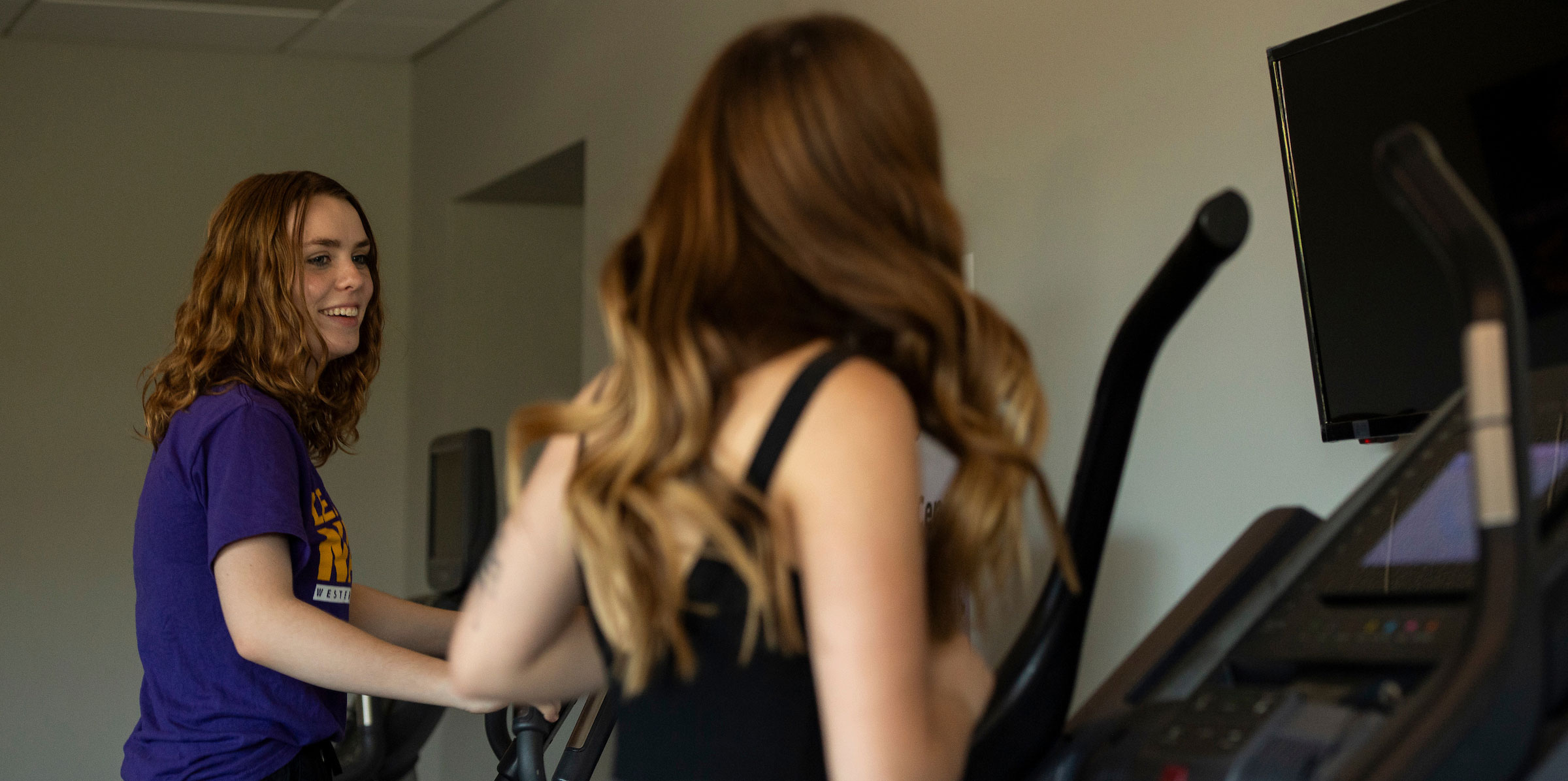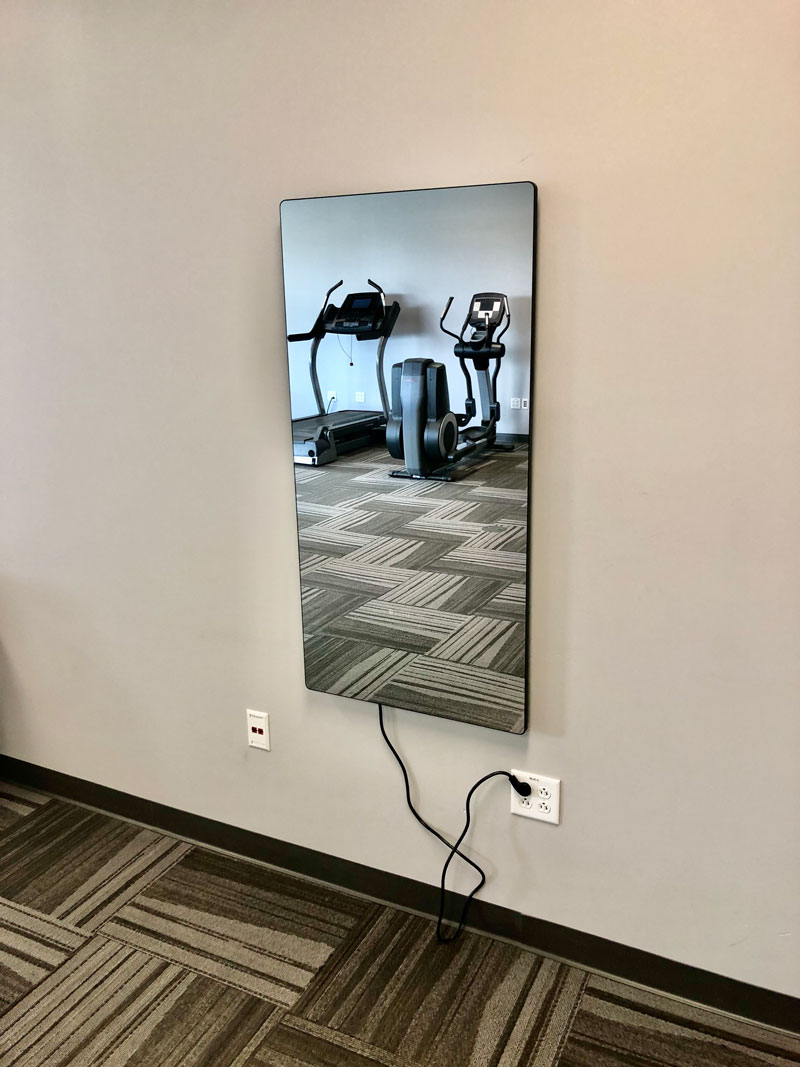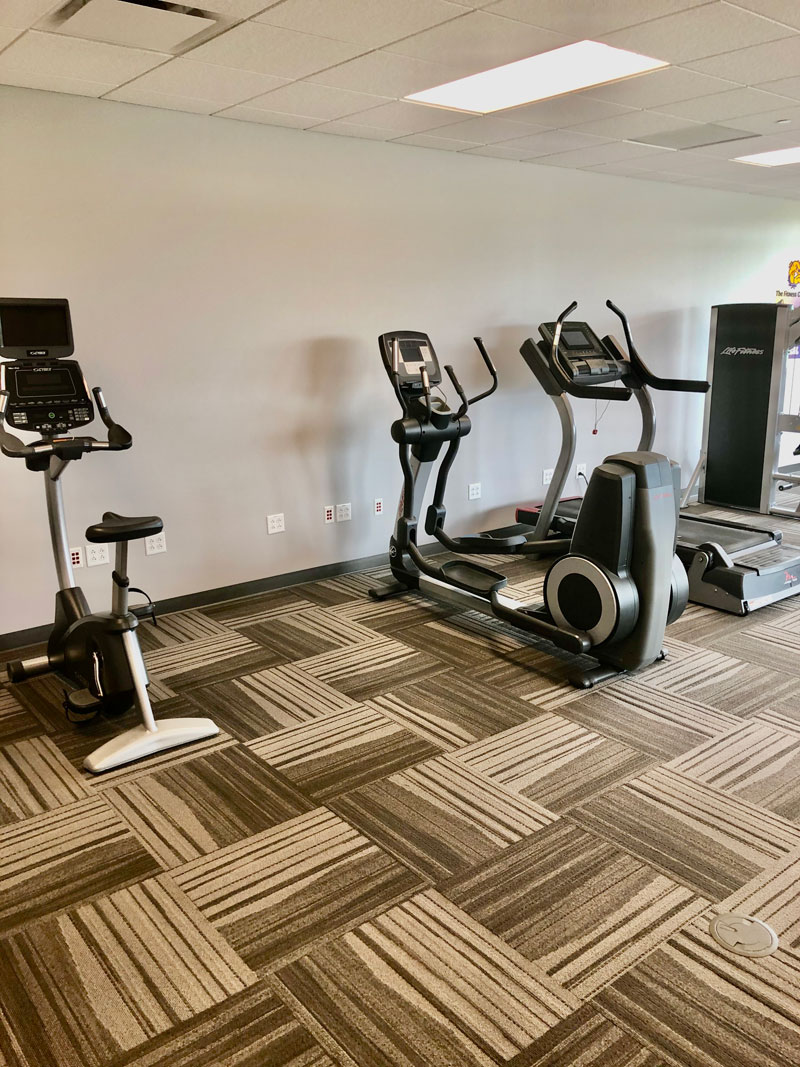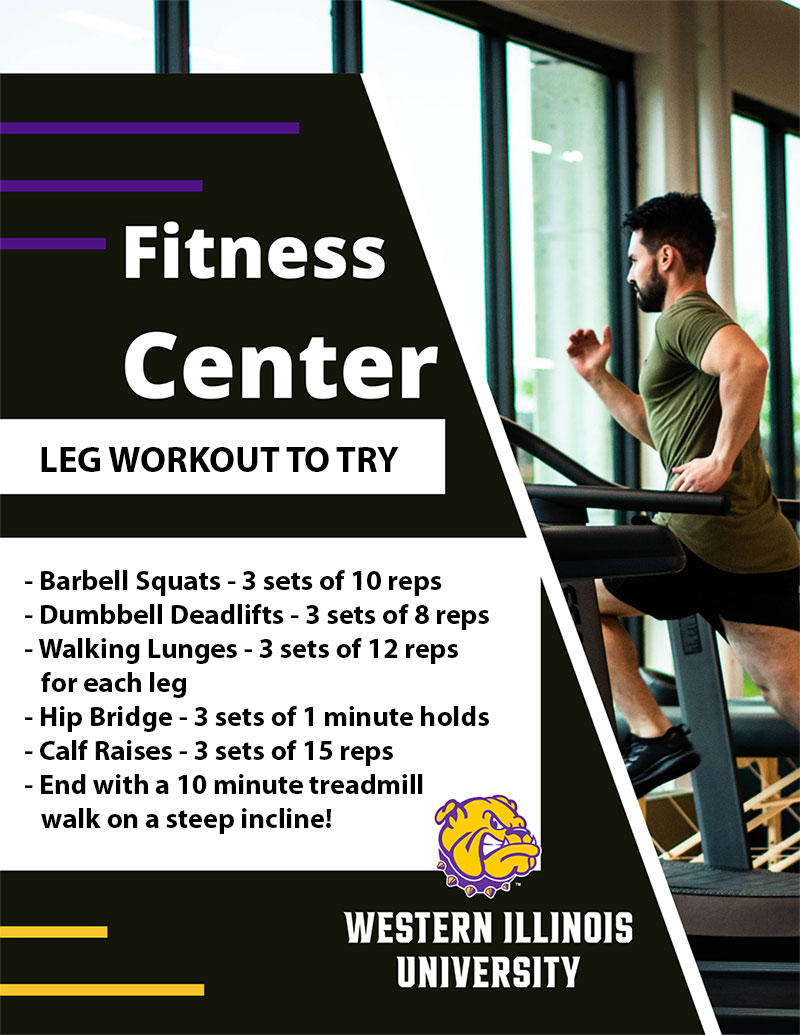Quad Cities Campus

Fitness in Rocky's Corner
We have moved!
Now is a perfect time to come and check out fitness options in Rocky's Corner.
- The hours for this room vary. Check in at the Student Services reception area in Riverfront Hall for more specific hours.
Winter Safety Tips for Outdoor Workouts
- Account for the wind chill
- Be aware of hypothermia and frostbite
- Dress like an onion (layers)!
- Stay hydrated
- Cover head, ears, hands and feet
- Wear bright colors to be seen
- Warm up and cool down
Location: Rocky's Corner - Riverfront Hall
Hours:
- Monday: 7:30 a.m. - 4:30 p.m.
- Tuesday: 7:30 a.m. - 4:30 p.m.
- Wednesday: 7:30 a.m. - 4:30 p.m.
- Thursday: 7:30 a.m. - 4:30 p.m.
- Friday: 7:30 a.m. - 4:30 p.m.
Contact Information
Student Services
309-762-9080


Nutrition Basics
Here is some basic information about nutrition to help your body and mind feel on the right track this semester. Try to be able to get one of each of these macronutrients every time you have a meal.
Protein: Protein helps make up the tissues in our body and recover our bodies after exercise. Some examples of heavy protein food items are beef, pork, fish, beans, lentils, seeds, etc.
Carbohydrates: Carbohydrates help give us the energy to do our everyday activities and can help control our blood sugar levels from getting too low or too high. Examples of carbohydrate heavy foods are bread, pasta, and potatoes.
Fats: Fats are equally important to have in our diet because they help maintain our hormones, protect our organs, and help us feel full after eating. Avocados, nuts, cheese, whole eggs, etc. are all good sources of fats.
Exercise & Nutrition for Mental Health
Exercise:
Exercise has been proven to increase mental health because of the rush of endorphins that it can cause. Endorphins may make us feel happier, and just overall feel better. Cardio like walking, running, and biking may be more effective at this, but find something active that you like to do and give it a try! Just 15-30 minutes a day could really make a difference.
Nutrition:
What we eat can impact our mood so much because the gut is home to tons of neurotransmitters that connect back up to our brain. Foods with a lot of sugars or fats can cause inflammation or irritation to our gut and then send those upset signals to our brain. This is why it is important to try to have a diet consisting of a lot of fruits, vegetables, and other whole foods.
Reminder:
Having a great workout regimen and a diet full of fruits and veggies won’t guarantee that you’ll never feel depressed or anxious, but it may make you feel a little better on a day-to-day basis. Never be afraid to reach out to friends, family, or mental health professionals when these behaviors aren’t helping.
Mental Health Resources:
Leg Workout


Connect with us: